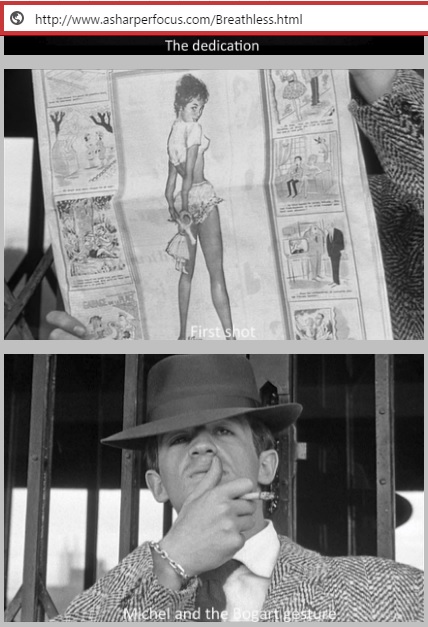Monday, September 6, 2021
In Memoriam
Monday, July 19, 2021
Interior/Exterior . . .
Or: Dreaming of Dinner-Party-Gate
|
An Ordinary Evening in New Haven, XXII
Professor Eucalyptus said, “The search
For an interior made exterior
With the Inhalations of original cold
Not the predicate of bright origin.
The cold and earliness and bright origin
That it is wholly an inner light, that it shines — Wallace Stevens |
For those who prefer not-so-sleepy bosoms, here are two
interior/exterior design notes suggested by the previous post —
Interior:
Exterior:
Wednesday, November 9, 2016
In the Labyrinth of Memory
Saturday, July 16, 2016
Outer, Inner
A detail from this morning's 6 AM post —

|
An Ordinary Evening in New Haven, XXII
Professor Eucalyptus said, “The search
For an interior made exterior
With the Inhalations of original cold
Not the predicate of bright origin.
The cold and earliness and bright origin
That it is wholly an inner light, that it shines — Wallace Stevens |
See also Bloomsday 2007, "Obituaries in the News."
This morning's 6 AM post linked to a more recent obituary in the news —
"… while Jules and Judy were still living in Brooklyn Heights …
Jules collaborated with his former roommate, Norton Juster,
by illustrating what was to become the children’s classic
The Phantom Tollbooth . Neither author or illustrator had
a clue as to how to get this unlikely work published, and it
was Judy’s idea to take it to a mutual friend . . . ."

Tuesday, February 1, 2011
The Search
An image suggested by last night's PBS hour "Chautauqua: An American Narrative"—

Click for larger versions of the image search and of the Hall of Philosophy.
Both the screenshot and the Chautauqua photo (by jbi46 at flickr.com) were taken on July 19th, 2010.
The screenshot appeared in the post "Pediments of Appearance" (which also included two much less complex images).
Some background — A webpage on Analytical Cubism and a related search in this journal.
From Wallace Stevens, who appears at top center in the image above—
An Ordinary Evening in New Haven, XXII
Professor Eucalyptus said, “The search
For reality is as momentous as
The search for god.” It is the philosopher’s search
For an interior made exterior
And the poet’s search for the same exterior made
Interior: breathless things broodingly abreath
With the Inhalations of original cold
And of original earliness. Yet the sense
Of cold and earliness is a daily sense,
Not the predicate of bright origin.
Creation is not renewed by images
Of lone wanderers. To re-create, to use
The cold and earliness and bright origin
Is to search. Likewise to say of the evening star,
The most ancient light in the most ancient sky,
That it is wholly an inner light, that it shines
From the sleepy bosom of the real, re-creates,
Searches a possible for its possibleness.
Wednesday, February 10, 2010
Mathematics and Religion, continued
But Seriously…
From "Georg Cantor and the Battle for Transfinite Set Theory," by Joseph W. Dauben (pdf)–

"It is easy, of course, to misinterpret the religious element in Cantor's thinking, as popularizers often do. This was certainly the case in an article that appeared not long ago in the French magazine La Recherche, which supplied [the above] caricatures to illustrate an expository article about Cantor, his religious convictions, psychological illness and transfinite set theory.* The first drawing depicts Cantor in ecstasy, as it were, receiving the divine message. In the second illustration, the figure with the gun of course is meant to be Kronecker– with God helping Cantor to maintain his balance– all of which rests precariously on a transfinite aleph. But there is a very serious side to all of this…."
* Pierre Thuillier, “Dieu, Cantor et l'Infini,” La Recherche, (December, 1977), pp. 1110-1116.
Everything and More: A Compact History of Infinity, by David Foster Wallace–
"In modern medical terms, it's fairly clear that G.F.L.P. Cantor suffered from manic-depressive illness at a time when nobody knew what this was, and that his polar cycles were aggravated by professional stresses and disappointments, of which Cantor had more than his share. Of course, this makes for less interesting flap copy than Genius Driven Mad by Attempts to Grapple with ∞. The truth, though, is that Cantor's work and its context are so totally interesting and beautiful that there's no need for breathless Prometheusizing of the poor guy's life. The real irony is that the view of ∞ as some forbidden zone or road to insanity– which view was very old and powerful and haunted math for 2000+ years– is precisely what Cantor's own work overturned. Saying that ∞ drove Cantor mad is sort of like mourning St. George's loss to the dragon: it's not only wrong but insulting."
Related entertainment:
David Foster Wallace,
Influential Writer, Dies at 46
and the film "Neverwas"–





